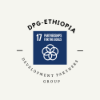Breadcrumb
Significant progress is being made towards the Millennium Development Goals, with Ethiopia on track to meet Goal 1 (eradicate extreme poverty and hunger), Goal 2 (achieve universal primary education), Goal 6 (combat HIV/AIDS, malaria and other diseases) and Goal 8 (develop a global partnership for development). Good progress is also being made towards Goal 4 (reduce child mortality) and Goal 7 (ensure environmental sustainability).
External aid has played a significant role in helping to deliver this development progress and growth, saving lives and improving livelihoods. These achievements are an important measure by which donors assess the overall effectiveness of their support to Ethiopia.
Allegations of distortion in donor-supported development programmes
In January 2010, in response to allegations that some donor-supported programmes in Ethiopia were being used for political gain – with aid allocated according to political affiliation, rather than solely need – the Development Assistance Group (DAG) commissioned a study to assess the rigour of the programme systems and safeguards that are designed to ensure that aid is spent effectively.
The main allegations, reported by the Ethiopian opposition, international NGOs and the media, were that targeting of beneficiaries and recruitment of public service employees within a number of donor-supported programmes were being influenced by considerations of political affiliation; in short, that aid allocations were subject to political distortion.
The allegations referred to programmes including the Productive Safety Nets programme (PSNP), the Protection of Basic Services programme (PBS), the humanitarian Relief programme, and the combined Enhanced Outreach Strategy-Targeted Supplementary Feeding programme (EOS-TSF). Development Partners provide approximately $1.5 bn per year through these programmes, delivering essential resources in support of Ethiopia’s Government-led efforts to reduce poverty.
The DAG study: Approach and findings
Development Partners have a clear responsibility to ensure that aid is spent effectively and reaches its intended beneficiaries – and will do all that is necessary in this regard. The DAG’s approach has therefore been to examine the robustness of the systems and safeguards that are in place to prevent, detect and address distortion together with available data on how effectively aid is spent and who it reaches. Further work, which could include detailed fieldwork, will be considered as part of a potential second phase.
At the same time, given the importance of external aid in a resource scarce country like Ethiopia, the DAG was keen to make sure that programmes with a track record of development impact were not thrown off course without due cause.
The Government of Ethiopia shares the responsibility for ensuring aid spent through government programmes is spent effectively and reaches its intended beneficiaries and, moreover, has the lead responsibility to investigate specific allegations through appropriate administrative and legal channels where this is justified.
The study included a thorough review of the existing systems and safeguards for each programme, and consultation with development partners, civil society and the Government of Ethiopia. The study found that all four programmes have accountability systems in place that provide checks on distortion, including distortion for political gain, but that all four programmes should be further strengthened by giving more attention to transparency (through the generation and dissemination of information), independent monitoring, and the incentives which drive performance.
Next steps
The Government of Ethiopia has followed the progress of the DAG study with interest, and from the start has signalled its intent to work with Development Partners to act on any recommendations to improve the systems and safeguards in the programmes concerned, including investigating where appropriate. The DAG is now working with the Government to act on the recommendations for continued strengthening of safeguards, ultimately to maximise the developmental impact of all donor-supported programmes in Ethiopia.
To read the full report of the DAG study, please follow this link
